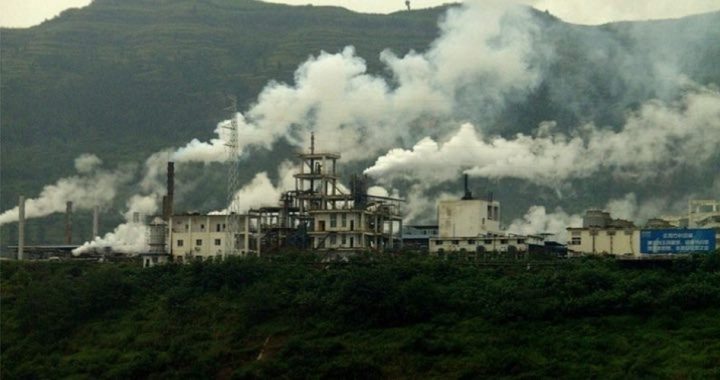
The latest report from Caixin/Markit should surprise no one watching China’s continuing economic decline. On Monday Caixin/Markit announced that its purchasing managers’ index (PMI) for China’s services sector fell in September to the lowest level since December 2015, and close to the lowest recorded since the survey began in 2005.
Its PMI for China’s manufacturing sector also fell in September, causing Zhengsheng Zhong, a director at CEBM Group, to add that these numbers “suggesting downward pressure on [China’s] economic growth may re-emerge in the fourth quarter.”
Indeed they might. As The New American and others have noted, China’s economy has been losing both airspeed and altitude since at least 2010. Prior to that time, China prided itself on having grown its economy by more than 10 percent a year for the past 30 years. When an economy is flat on its back, any growth at all looks impressive. And following Mao’s death in 1976, China was a Third World country based almost entirely on agricultural collectivism. The new communist dictator decided to take a risk and removed some shackles from agriculture and allowed the peasants to own the farms they were working.
The explosion was eye-popping but not unexpected: When human resources are unleashed, the results are predictable. In America’s golden age — roughly 1870 to 1890 — its economy grew at double digits, aided and abetted by technological advances and no income taxes.
Since 2010, however, the communist masters in China decided to stimulate the economy through debt, and the results of that were also predictable: Thanks to China’s “diminished financial stability” in September, S&P Global Ratings downgraded China’s credit rating for the first time since 1999, following Moody’s similar downgrade in May. The amount China has borrowed to keep its economy booming has quadrupled in just the last seven years and now represents more than 260 percent of the country’s entire economic output. Moody’s noted that the country’s debt has been growing at 15 percent a year, twice the rate of growth of the economy.
Although approximately 70 percent of China’s economy comes from the country’s more than 30 million private businesses, the state remains committed to fostering SOEs — state-owned-enterprises — as tools to provide political patronage to party officials, as bellwethers for economic policy, and to keep social control of the masses.
But those SOEs are suffering greatly under suffocating amounts of debt, reducing their profitability. Their average return on capital, according to the Wall Street Journal, “is barely 3% — not only well below the 7% average for all industrial companies but [also below] the average bank lending rate of 5%. SOE debt has mushroomed to threaten the entire financial system.”
What to do? Looking around for options on how to bail out the SOEs, the Chinese dictators are starting to require some of those private businesses to do the bailing. They persuaded (forced?) Tencent and Alibaba into purchasing 13 percent of the government’s state-owned telecom company China Unicom, paying $4 billion for the privilege. This gives China Unicom much needed capital at essentially zero cost, and relieves the national government of the burden.
It’s the old, old story: raising a cow by letting it roam free in the fields and then, when it is full and healthy and robust, starting to milk it. Those private businesses run by private business owners in China are learning that they’re not so private after all.
Photo of factory in China: High Contrast
An Ivy League graduate and former investment advisor, Bob is a regular contributor to The New American magazine and blogs frequently at LightFromTheRight.com, primarily on economics and politics. He can be reached at [email protected].
Related article:



